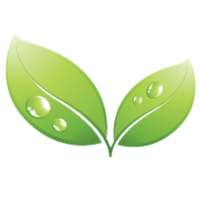Natural Ways to Manage PMS Symptoms
Premenstrual syndrome (PMS) affects millions of women each month, bringing a constellation of physical and emotional symptoms that can range from mildly annoying to significantly disruptive. While over-the-counter medications have their place, many women are turning to natural approaches to find relief. This blog explores evidence-based natural strategies to help manage PMS symptoms.
Understanding PMS
PMS typically occurs 1-2 weeks before menstruation and can include symptoms like:
- Mood swings, irritability, or anxiety
- Bloating and water retention
- Breast tenderness
- Fatigue
- Headaches
- Food cravings
- Sleep disturbances
These symptoms result largely from hormonal fluctuations, particularly changes in estrogen and progesterone levels, which can affect neurotransmitters like serotonin that influence mood and physical comfort.
Dietary Strategies
1. Balance Blood Sugar
Unstable blood sugar can worsen mood swings and energy crashes. Try:
- Eating regular, balanced meals with protein, healthy fats, and complex carbohydrates
- Reducing refined sugars and processed foods
- Including fiber-rich foods to stabilize blood sugar
2. Reduce Salt Intake
Excessive sodium can worsen bloating and water retention. During the premenstrual phase, be mindful of:
- Processed and packaged foods
- Restaurant meals
- Condiments and sauces
3. Limit Caffeine and Alcohol
Both caffeine and alcohol can exacerbate anxiety, irritability, and sleep problems associated with PMS. Consider:
- Switching to herbal teas like chamomile or peppermint
- Reducing coffee consumption, especially in the afternoon
- Avoiding or minimizing alcohol in the week before your period
4. Increase Calcium and Magnesium
Research suggests these minerals may help reduce PMS symptoms:
- Calcium: Dairy products, fortified plant milks, leafy greens
- Magnesium: Dark chocolate, nuts, seeds, legumes, whole grains
Lifestyle Approaches
1. Prioritize Regular Exercise
Physical activity releases endorphins that improve mood and reduce pain:
- Aim for 30 minutes of moderate exercise most days
- Yoga and stretching can be particularly helpful for cramps and mood
- Even light walking can provide benefits
2. Manage Stress
Stress can amplify PMS symptoms. Consider:
- Mindfulness meditation or deep breathing exercises
- Progressive muscle relaxation
- Journaling
- Taking time for activities you enjoy
3. Optimize Sleep
Poor sleep can worsen irritability and fatigue:
- Establish a regular sleep schedule
- Create a relaxing bedtime routine
- Keep your bedroom cool, dark, and comfortable
- Limit screen time before bed
Herbal Supplements
Some herbs have shown promise for managing PMS symptoms: such as chasteberry, ginger, and dong quai. Naturaful Bust Firming Cream also contains some of these herbs to help reduce symptoms of PMS and balance hormones naturally.
When to See a Doctor
While natural approaches help many women, consult a healthcare provider if:
- PMS symptoms significantly interfere with daily activities
- You experience severe depression or anxiety
- Natural remedies aren't providing relief
- Your symptoms have changed dramatically
Final Thoughts
Managing PMS naturally often requires a personalized, multi-faceted approach. It may take time to discover which strategies work best for your body, so be patient and persistent. Keep a symptom journal to track which interventions seem most effective for you.
Remember that self-care isn't selfish—it's essential. Taking time to nurture yourself during your premenstrual phase isn't just about reducing symptoms; it's about honoring your body's natural rhythms and needs.
Disclaimer: This article is for informational purposes only and is not intended to replace professional medical advice. Always consult with a healthcare provider before starting any new supplement regimen, especially if you have existing health conditions or take medications.

